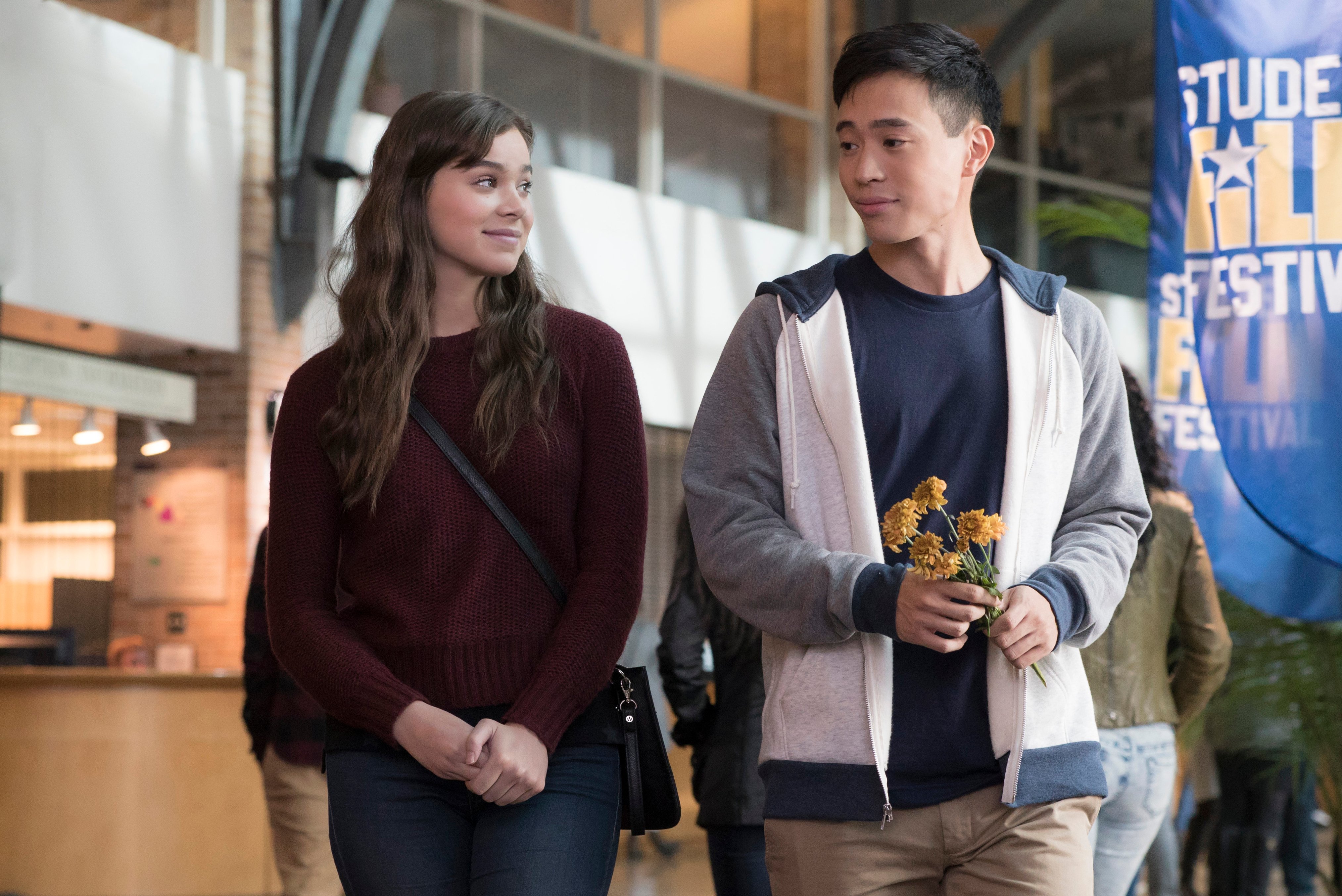It’s an audacious gambit for Kelly Fremon Craig to open “The Edge of Seventeen” with her protagonist Nadine (Hailee Steinfeld) stepping to the bouncing beat of Santigold’s “Who I Thought You Were” while rushing to tell her favorite teacher, Mr. Bruner (Woody Harrelson), that she is going to kill herself. But it works. The moment somehow evokes a type of comforting grim humor. This comic scene is presented without any context, and it’s a bold sight to behold.
After this, the film jumps right into Nadine recounting her childhood as her father dies, her disastrously uncaring mother yells at her, her older brother Darian becomes the golden child of the family, and her only form of solace comes in the form of her longtime childhood friend Krista. That is, until Nadine catches Krista hooking up with Darian, to her utter horror. This is a film that is unafraid to sit the audience down and tell them, “Hey, we’re not going to glamorize this. Being a teenager is awful.” It’s real. It’s true. It’s a bona fide portrayal of how being a teenager actually feels, filled with incredible moments of such pure, raw angst that it should basically have everyone in the audience shouting “SAME.”
Now that does not mean it’s a flawless film. For one, there is the film’s depiction of Erwin Kim (Hayden Szeto). Erwin, Nadine’s classmate who has an incredibly desperate crush on her, is friend-zoned over and over again. One might ask why he doesn’t just give up, or why Nadine doesn’t just ask him out, as she clearly has some sort of connection with him. But all Nadine really wants is to be his friend. And she really does need a friend. Krista is off with Darian. Mr. Bruner, with whom she shares a common sense of hysterically cynical sarcasm, is several decades her senior. So Erwin becomes the prime outlet through which Nadine can really express herself. And Szeto’s adorable awkwardness takes the audience completely by surprise. Even Nadine herself comes to the conclusion that maybe Erwin really does have something special about him.
Unfortunately, she can’t see that as something romantic. Which, undeniably, raises the question of race. Her dreamy Caucasian crush gets to be a total jerk to her, but the sweet, kind Erwin — who happens to be Asian — is pushed away again and again. Even at the end of the film, when Nadine gives him flowers and begins to mingle with his friends, the one Asian love interest continues to be consistently brushed off. Comparing Erwin with the rest of the blindingly white cast, a sort of uncomfortable reality is raised. And it’s a little heartbreaking to watch. Because ultimately, Erwin just wants to be with Nadine for who she is, even if that means only being her friend. Erwin reflects how everyone wants to be appreciated and loved. And his desire for physical contact is simply an extension of that.
Steinfeld herself brings a gentle touch to her portrayal of Nadine that should bring everyone back to their own adolescent years — even if they weren’t the type that partied hard or had a rivalry with their older sibling. It is this tenderness and vulnerability that allow the film’s simple coming-of-age story to stand out in a media environment saturated with action-packed, billion-dollar, CGI, sci-fi, special-effect extravaganzas. “The Edge of Seventeen” is a much smaller film than those. But that just means it is more personal. Even if we didn’t all go through the same life experiences, everyone felt like Nadine at some point growing up. I even found myself defending Nadine’s sulky-anger at her brother and silent loneliness at her first party.
How many coming-of-age movies have even been made in the past few years? And how many of them were able to capture adolescence without embodying the soundtrack of “My Little Pony: Friendship is Magic”? “The Edge of Seventeen” is the rare film about being a teenager to acknowledge that it’s not entirely something to laugh at. Sometimes being a teenager just sucks. And that’s okay.
Contact Olivia Popp at opopp ‘at’ stanford.edu.
